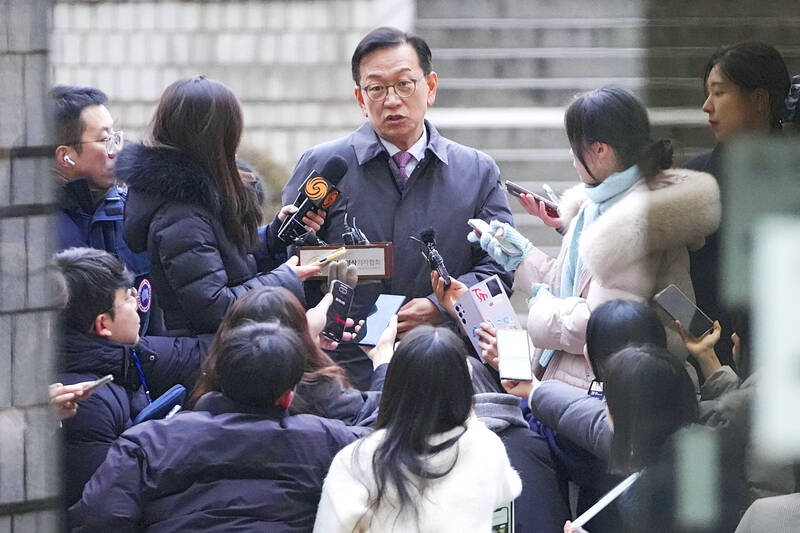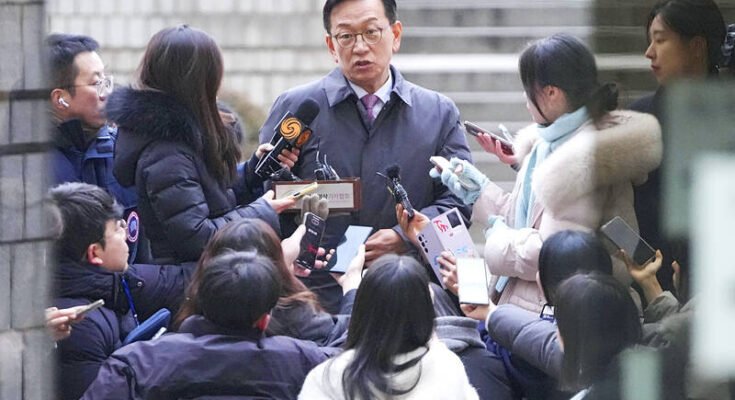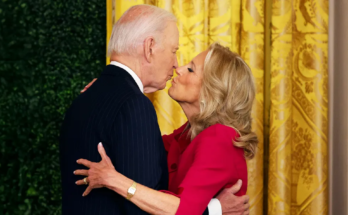AFP, SEOUL
Impeached South Korean President Yoon Suk-yeol refused to appear for fresh questioning by investigators yesterday, a day after his dramatic arrest over a failed martial law declaration.
The South Korean Constitutional Court also opened its second hearing in a trial that would decide whether to uphold Yoon’s impeachment, following the dawn raid that made him the country’s first-ever sitting president to be detained.
The former star prosecutor — who faces charges of insurrection — was questioned for hours on Wednesday, but exercised his right to remain silent before being moved to a detention center.

Seok Dong-hyeon, one of impeached South Korean President Yoon Suk-yeol’s lawyers, speaks to the media upon his arrival at the Seoul Central District Court yesterday.
Photo: AP
Investigators from the Corruption Investigation Office (CIO) were to resume Yoon’s questioning yesterday afternoon, but his team told them he would not attend.
“President Yoon Suk-yeol’s representatives informed the CIO through his legal counsel around 1:50pm that there is ‘no change in his position,’ indicating his intent not to appear,” the CIO said in a statement.
Yoon’s lawyer confirmed the embattled leader would not attend, without specifying the reason, but told the Yonhap news agency it was for health reasons.
“President Yoon is not well and fully explained his position yesterday so there is nothing more to be interrogated about,” Yoon Kab-keun told Yonhap, an apparent reference to his Wednesday decision to not answer questions.
Wednesday’s dramatic arrest saw a hundreds-strong force of police and investigators bypass bus barricades, cut barbed wire and scale ladders to get inside the compound where Yoon was surrounded by hundreds of guards.
Yoon said he complied with investigators to avoid “bloodshed,” but did not accept the legality of the investigation.
Meanwhile, officials were trying to secure a new warrant that could hold him for longer than 48 hours.
If investigators successfully obtain that warrant, they are expected to be given a 20-day extension to the leader’s detention to allow time to formalize an indictment against him.
South Korea’s opposition Democratic Party celebrated Yoon’s detention, while National Assembly Speaker Woo Won-shik said it was time to stabilize the country after weeks of turmoil.
However, Yoon’s lawyers have filed for a review of the warrant used to arrest him.
A hearing to review the warrant’s legality was set for after press time at a Seoul court yesterday.
Yoon’s legal team appeared to be trying to drag out the arrest process to his benefit, experts said.
“It appears that every legal tactic is being employed by Yoon’s team to prolong the situation,” said Lee Jong-soo, a law professor at Yonsei University.
In a parallel probe, the Constitutional Court is deciding whether to uphold Yoon’s impeachment.
If that happens, Yoon would finally lose the presidency and fresh elections must be held within 60 days.
He did not attend yesterday’s hearing in person and his lawyers instead requested a postponement that the court “decided not to accept,” spokesperson Cheon Jae-hyun told reporters.
The trial is continuing in Yoon’s absence, although proceedings could last for months.
However, the South Korean National Assembly’s legal team told reporters before the hearing began that Yoon’s arrest had “created the conditions to swiftly resolve the constitutional crisis through procedures outlined by the Constitution and the law.”



